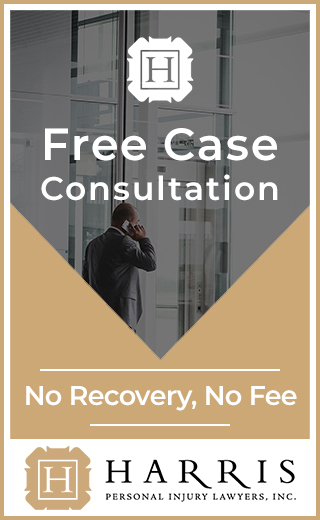Castaic Bus Accident Attorneys
Opting to take the bus instead of hitting the road alone can help you sidestep many of the area’s parking headaches, making short work of your morning commute. However, even these reliable carriers are involved in accidents on a regular basis, and victims can often suffer serious injuries that carry long-term health implications. If you were hurt in a wreck, turn to our Castaic bus accident attorneys to discuss your options.
We are here to take your calls 24 hours a day, 7 days a week. Reach out to us at 1-800-GO-HARRIS to find out more.
Do I Have a Strong Bus Wreck Claim?
On paper, filing a personal injury claim seems like a straightforward process—especially if another party appears to be entirely at fault for causing the accident. However, if you are seeking a considerable sum, it’s likely that the insurer will commit significant resources towards investigating and challenging your case. As a result, the insurance adjuster may leave no stone unturned to find evidence that could be used to reduce or even deny your claim.
However, if you manage to gather strong evidence, you will likely have the necessary tools to counter or mitigate any defenses that arise during proceedings. Let’s take a look at a few common signs that you might have a convincing bus accident case:
- You Followed Your Doctor’s Orders: As a claimant, you have a strict duty to take sufficient steps to mitigate additional damages. In other words, you need to do everything in your power to expedite your recovery and avoid exacerbating your condition. As such, if your doctor has prescribed specific medication, instructed you to complete daily exercises, or ordered you to take time off work to let your injuries heal, you should never deviate from their instructions. Signs that you failed in this duty could result in your financial award being reduced.
- You Visited the Doctor Immediately: After a serious accident, you should seek medical treatment as soon as possible. The longer you wait to get a diagnosis, the higher your chances of facing disputes during proceedings. For instance, if you took weeks after the accident to schedule a doctor’s appointment, the insurer might argue that you suffered your injuries in a different incident as the date of your medical evaluation doesn’t line up with the day of the accident. Alternatively, opposing parties may assert that your injuries can’t be as serious as you are claiming as you did not require urgent care.
- You Have Strong Evidence: In a bus wreck claim, you will be required to demonstrate liability, causation, and damages. To do so, you will need to gather strong evidence. At HPIL, we can help conduct an in-depth investigation into the accident, gathering the necessary proof to build a convincing case. If you were able to collect evidence at the scene—such as photographs of the wreck, eyewitness statements, and dashcam footage—you should share this evidence with your attorney during the initial consultation.
Do I Need to Start a Personal Injury Journal?
If you’ve spent any amount of time researching personal injury claims, you may have encountered the term “personal injury journal”. This journal is a space for you to keep track of your pain levels, describe your limitations, and keep tabs on your medication side effects. While it’s not mandatory to start a personal injury journal, it could be a useful piece of evidence in your fight for a fair settlement.
Let’s take a look at a few items you may want to include as part of your journal:
- Your Account of the Day of the Accident: What caused the wreck? What did you, the other passengers onboard, and the driver say immediately afterwards? Did you speak to the other passengers? Did you take down their contact details? Did police investigate the wreck? The answers to these questions could help guide your personal injury lawyer’s investigation into the accident. For example, if you saw surveillance cameras near the accident scene, your attorney can take steps to obtain this video footage before it is erased.
- Pain Levels: Even a minor injury can lead to considerable pain and suffering, and catastrophic injuries can cause debilitating agony. One of the primary functions of a personal injury journal is keeping track of your pain levels. As such, whenever you experience pain, you should write down a description of what you are experiencing and grade the severity of such sensations on a scale of 1 to 10. Your attorney may use these entries to help build a case for non-economic damages such as pain and suffering, loss of enjoyment in life, and emotional distress.
- Limitations: Do your injuries impede your ability to do your job, engage in physical activity, tackle chores around the home, or enjoy your hobbies? You should take notes on how your condition inhibits your ability to live a normal life and share these entries with your attorney.
- Doctor’s Appointments and Consultations: Whether you’re sitting down with a specialist or seeing your primary care physician, you should take notes on everything they say. Not only will these entries help you keep track of their instructions, but you can also use these notes to demonstrate that you followed their orders closely, helping you mitigate disputes over failure to mitigate damages.
Discuss Your Situation with a Castaic Bus Accident Attorney
Were you hurt in a bus accident? It may be in your best interests to sit down with one of our attorneys. Dial 1-800-GO-HARRIS or head over to our online contact form HERE to lock in a free case review.

